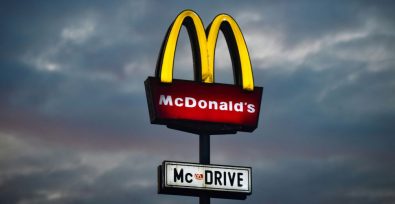A comprehensive two-year investigation by The Associated Press unravels intricate, invisible webs connecting some of the world’s largest food companies to forced prison labor in the U.S.. This shadowy workforce, often excluded from basic labor protections, produces goods that end up on the shelves of almost every American kitchen, from breakfast cereals to fast-food meats.
One of America’s most vulnerable workforces
Incarcerated workers, facing the threat of parole denial or even solitary confinement if they resist, form one of America’s most vulnerable workforces.
Robin Mcdowell and Margie Mason for the Associated Press report,
They also are often excluded from protections guaranteed to almost all other full-time workers, even when they are seriously injured or killed on the job.
The goods these prisoners produce wind up in the supply chains of a dizzying array of products found in most American kitchens, from Frosted Flakes cereal and Ball Park hot dogs to Gold Medal flour, Coca-Cola and Riceland rice. They are on the shelves of virtually every supermarket in the country, including Kroger, Target, Aldi and Whole Foods. And some goods are exported, including to countries that have had products blocked from entering the U.S. for using forced or prison labor.
Many of the companies buying directly from prisons are violating their own policies against the use of such labor. But it’s completely legal, dating back largely to the need for labor to help rebuild the South’s shattered economy after the Civil War. Enshrined in the Constitution by the 13th Amendment, slavery and involuntary servitude are banned – except as punishment for a crime.
Prison slavery: technically not an employee
Frank Dwayne Ellington lost his life while working when his arm got caught in the machine he was cleaning in a poultry-processing plant. The company he was working for, Koch Foods, is one of the largest poultry processing companies in the U.S. with profits in the billions. Despite being able to, Koch Foods initially resisted compensating Ellington’s family for their loss, arguing that he wasn’t technically an employee.
Technically, they’re right. Under the 13th Amendment, slavery and involuntary servitude are the punishment for those convicted of a crime. Despite claims by various prison and law enforcement officials that work is rehabilitative or mutually beneficial, this Punishment Clause in the 13th Amendment allows for a system in which incarcerated workers are not afforded the same fundamental rights as non-incarcerated workers including a safe or even non-lethal work environment.
It’s time to amend the 13th Amendment
“There is nothing innovative or interesting about this system of forced labor as punishment for what in so many instances is an issue of poverty or substance abuse,” notes Cliff Johnson, from the MacArthur Justice Center at the University of Mississippi. We couldn’t agree more. Prison slavery has no part in 2024 society.
Together with partners, our community is demanding all states and the federal government to explicitly outlaw slavery and involuntary servitude as punishment for a crime in the U.S. and state constitutions.
We know you agree slavery belongs in the past. Let’s make sure the U.S. hears our collective call – add your voice to the campaign today.







Freedom United is interested in hearing from our community and welcomes relevant, informed comments, advice, and insights that advance the conversation around our campaigns and advocacy. We value inclusivity and respect within our community. To be approved, your comments should be civil.
Complex issue. On the one hand we have prisoners who need to be doing something. On the other we have companies profiting from free labor, without compensation or even protection from harm suffered from workplace injuries. Incarcerated people should NOT be made to work for profit making companies unless they are paid and covered by the companies as employees. Working within the prison complex to provide for their own maintenance along with educational opportunities is appropriate.
So many jailed have never worked a day legally.
The joys of earning your way must be taught to them.
Working may be the most reformative action taken in our prisons.
I feel ashamed to call US as champion of human rights when there is none for prisoners. 13th Amendment need to gurantee minimum rights of heath, working environment, leave, compensation for loss of body part or life, minimum wages, etc to the prisoners who are convicted for crime and asked to do involuntary labor. I do agree that it is rehabilitation but under the garb of rehabilitation, exploitation must not be permitted. State is doing injustice by doing injustice to prisoners of crime.
This shouldn’t really be a surprise; Coca Cola and McDonalds represent the worst of Capitalism. They screw their employees, their franchises. their suppliers, their staff, the environment and, of course, their customers. That people continue to consume their products, which are in themselves injurious to their health, is a mystery.
Justicia para estos hombres y mujeres!